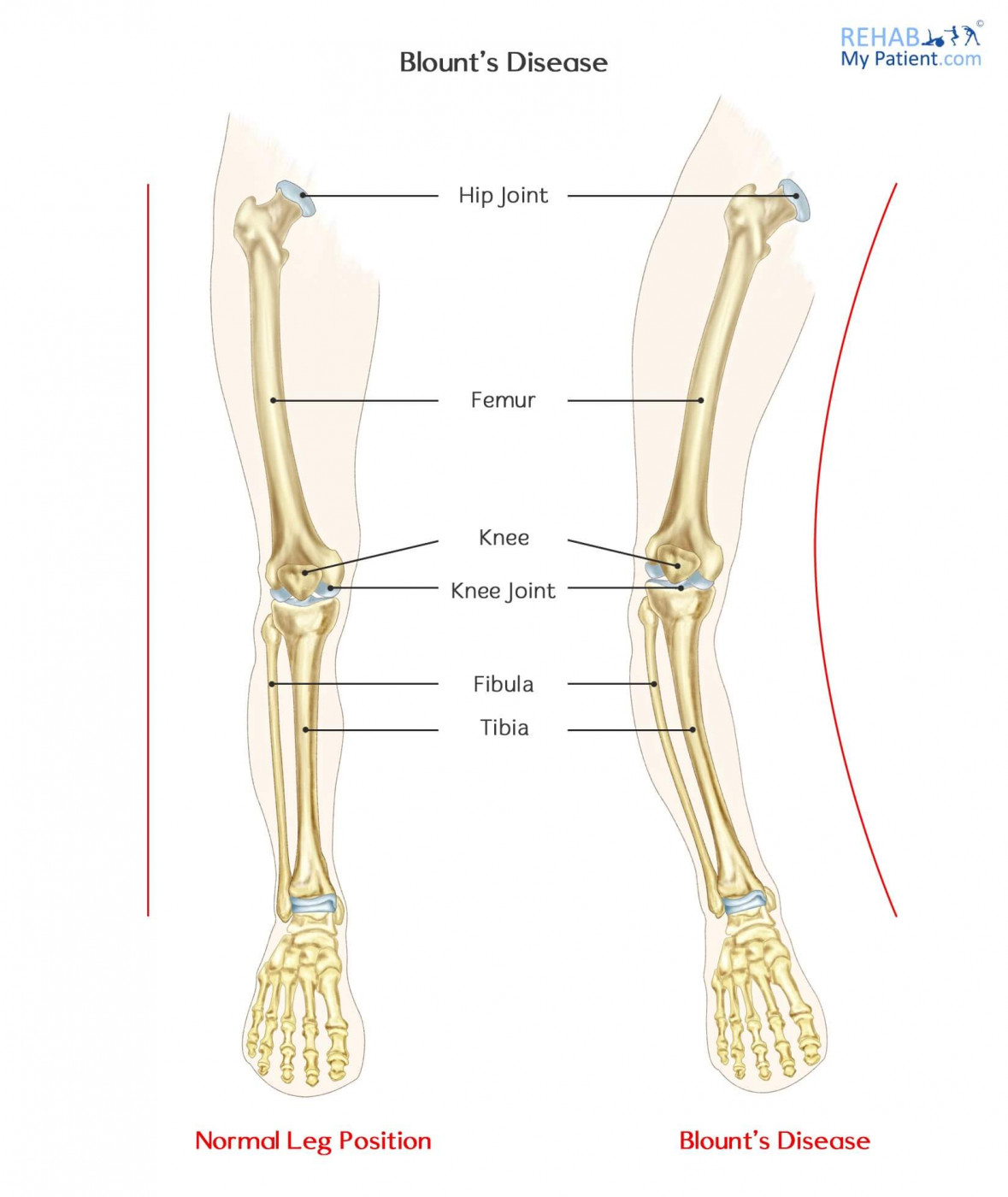
Blount's disease is a rare growth disorder that commonly affects children, which causes the legs to bow out just below the knees. In young infants, a small amount of bowing is not uncommon. As children begin walking, between one and two years old, their legs will start to straighten out. Children with Blount's disease have lower legs that remain bowed or bow even further out leading to problems walking. The inner surfaces of legs below the knee can bulge out slightly, while the toes can point in significantly. One of the legs might encounter mild shortening to the other leg. Children can end up with pain around the knees and have instability when trying to walk.
Blount's Disease Anatomy
The lower part of the leg has two bones, the fibula and the tibia. The shin bone, or the tibia, which is the larger of the two bones will bear the majority of the weight that is placed on the leg. It is located on the inside of the fibula, which is closer to the other leg. The thinner bone on the outside of the tibia, known as the fibula, runs parallel to the tibia. Just like all of the long bones in the body, the tibia will do the majority of its growing at the end of the bone throughout childhood. This bone is responsible for rapidly producing cartilage cells and bone, as well as the gradual lengthening in the leg.

How to Treat Blount's Disease:
- Observation
Children less than two years of age with mild bowing will probably be observed to see how the condition progresses. In certain instances, the bowing will be harmless and end up correcting itself within a year without any additional treatment.
- Orthotic Braces
Children between two and four years of age will be fitted with orthotic braces for the child's legs. The braces extend from the thigh all the way to the tip of the toes and underneath the feet. Several models exist, but the goal is to slowly guide the legs into a straight position so there is no bowing present. Braces are designed specifically for the child.
- Surgical Operation
Surgery is performed under anesthesia, so the child is put to sleep for the procedure to alleviate feeling any pain. Children who are three to four years of age or have severe bowing will have no choice but to go through surgery to correct the problem.
Tips:
- One of the only known methods for preventing the disease before it ever appears is to make sure the child is within their ideal weight range for their specific age.
- Blount's disease tends to occur often in those children who are significantly overweight or gaining weight rapidly.
- A positive family history is a factor associated with those who have the disease.
- Female, African-American, obese and early walkers are all at risk for Blount's disease.
- In most cases of Blount's disease, the condition is bilateral and symmetrical.
- Physical therapy can aid in strengthening exercises for the legs, and also in teaching good gait.
Zapisać się
Zarejestruj się już teraz, aby skorzystać z bezpłatnego okresu próbnego!
Zacznij korzystać z Rehab My Patient już dziś i zrewolucjonizuj proces przepisywania ćwiczeń, aby zapewnić sobie skuteczną rehabilitację.
Rozpocznij 14-dniowy bezpłatny okres próbny